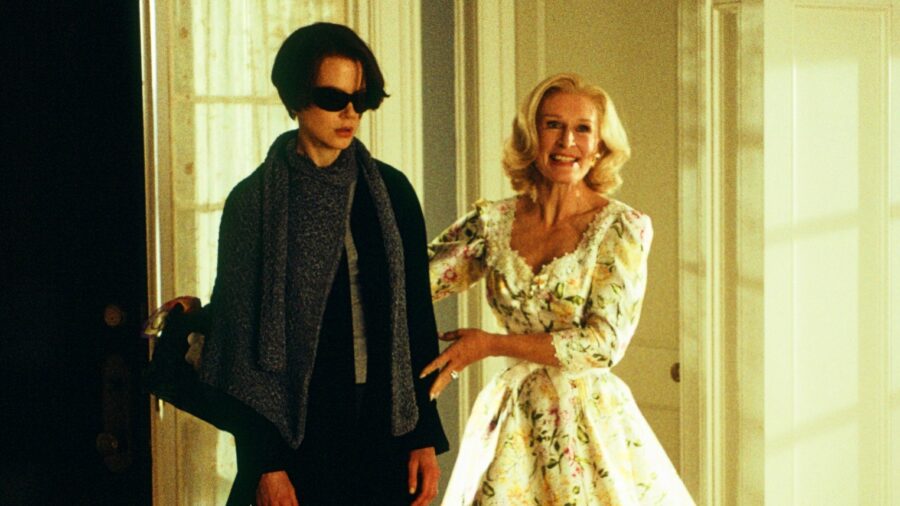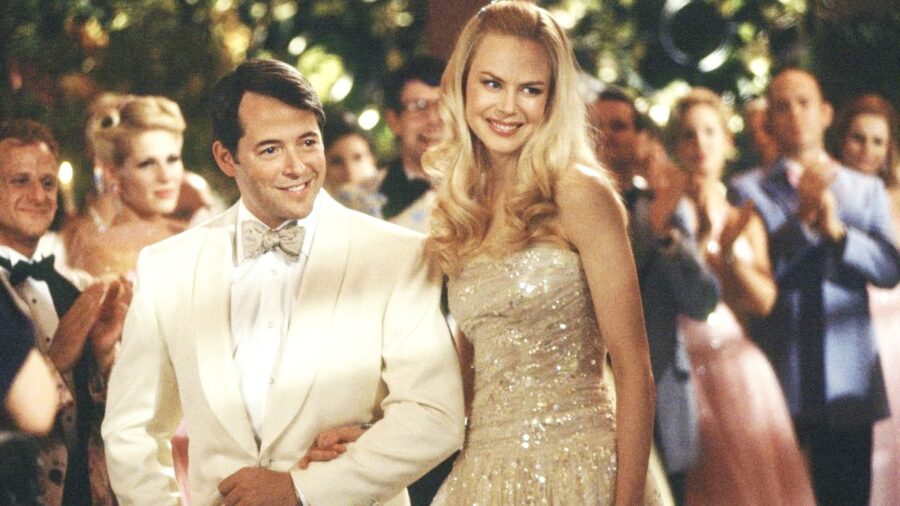Nicole Kidman Went From An Oscar To One Of The Worst Movies Of All Time
Nicole Kidman followed her Oscar win with the disastrous remake of The Stepford Wives.
In the early 2000s, Nicole Kidman reached a career high: she won the Academy Award for Best Actress for her performance as author Virginia Woolf in The Hours. The performance was considered subtle and moving (and relied heavily on fitting a beautiful actress with facial prosthetics, a la Charlize Theron in Monster), defeating Salma Hayek’s revelatory turn in Frida and Renée Zellweger’s energetic version of Chicago’s Roxie Hart. After years of roles of varying quality, Nicole Kidman had finally become a prestige actress and then, bizarrely, followed it with one of the worst big-budget movies ever made: 2004’s The Stepford Wives remake.

But let us backtrack a bit: Nicole Kidman had spent the 1990s bouncing between little-remembered dramas like Malice and My Life and successful but vapid blockbusters like the second worst 1990s Batman movie and The Peacemaker. Moulin Rouge! had brought her to a new echelon of stardom, cemented by her Oscar win and the arthouse credentials of Lars Von Trier’s Dogville and the epic, critic-baiting Cold Mountain. That Nicole Kidman’s next big film after this run of extremely arty movies was The Stepford Wives is certainly strange, but does make a certain kind of sense.
After all, The Stepford Wives is a remake of the 1975 movie of the same title, one of the more enduring science fiction horror films. Based on a novel by Ira Levin (who also wrote the source material for Rosemary’s Baby and The Boys from Brazil), the chilling notion of an idyllic village in which women had been secretly replaced by subservient, robotically cheerful duplicates has stuck in pop culture ever since. Given that horror and comedy are, in many ways, two sides of one coin, it makes sense that eventually someone would think to make a darkly satirical version of the story.
With that in mind, Nicole Kidman choosing to star in The Stepford Wives just after the peak of her critical acclaim also makes some sense: it would show she had good taste in genre fare, a sense of humor, and a take on social commentary. Factor in the well-regarded director Frank Oz (known as a puppeteer, but also darkly comedic films like Little Shop of Horrors and What About Bob?) and a supporting cast of ringers like Matthew Broderick, Better Midler, Glenn Close, and Christopher Walken, and it might have seemed like a good idea. It was not a good idea.

The Stepford Wives stars Nicole Kidman as Joanna Eberhart, a high-powered, highly successful television executive who produces sleazy reality shows with a tinge of pseudo-feminism, until a disgruntled participant (The White Lotus creator Mike White in a brief cameo) publicly attempts to shoot her. Nicole Kidman is quickly abandoned by her network, and she and her husband Walter (Matthew Broderick, who replaced fellow 1980s sweet guy icon John Cusack early in production) move to the tiny Connecticut town of Stepford to work on their troubled marriage and try to recenter. The town’s cohort of spookily cheerful women, led by Glenn Close, immediately raises Nicole Kidman’s suspicions, and that is where the movie almost gets good.
Watching The Stepford Wives is like watching an Olympic archer perfectly draw an arrow, then wildly miss the bullseye over and over again. The idea that Nicole Kidman’s character is right about the women being replaced by a fraternity of men led by the perfectly condescending Christopher Walken, but can only explain it in unconvincing terms of “it’s not normal for women to be happy!” is theoretically brilliant. However, the movie can never quite decide whether it wants to commit to the farcical gaslighting or actually have dramatic stakes in which Broderick betrays Nicole Kidman in order to feel better about his own mediocrity.
Reportedly, the production of The Stepford Wives was highly tense, with particular issues arising between Frank Oz and Better Midler (who plays a loud, proudly Jewish New York transplant who is responsible for the broadest jokes of the movie). It also was apparently hampered by Paramount being trigger-shy as to the intended ending, which seems to have echoed the 1975’s ambiguous finale. A number of reshoots basically turned it into a heroic story in which Nicole Kidman and Matthew Broderick team up to uncover the town’s secret, which is abruptly revealed to be that Christopher Walken is a robot and Glenn Close is a murderous super-genius who has been controlling everything.

Doesn’t quite make sense, does it? That is The Stepford Wives in a nutshell. Despite all the talent involved, it can’t seem to decide whether the women are actual, literal robot duplicates or the original women who have brain implants that both control them and make them super-strong and invulnerable, which seems counter-intuitive. It also can’t decide whether it wants to actually examine the simmering resentment between Nicole Kidman and Matthew Broderick, or just have them be a couple who is stronger together. It is a movie that cannot decide to be either hot or cold, and lukewarm is not a great temperature for anything.
Perhaps someday The Stepford Wives will be reclaimed as a kitschy cult movie. It certainly has not scared Nicole Kidman off genre fare like Aquaman or Paddington. She has never achieved quite the same critical acclaim since her early-2000s run, but is that the fault of The Stepford Wives? Or just Nicole Kidman’s agent?












